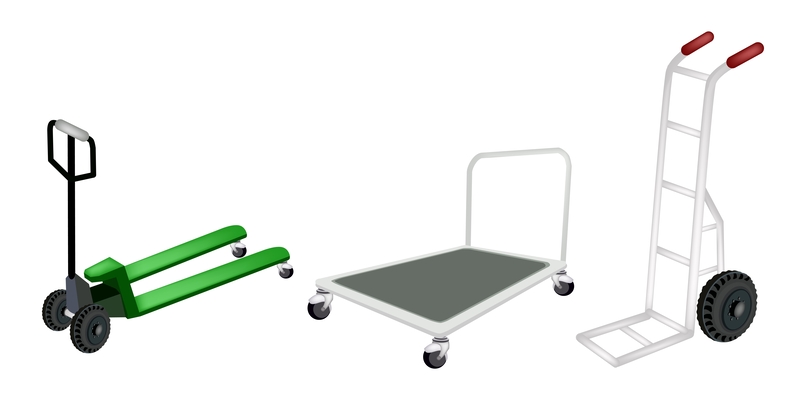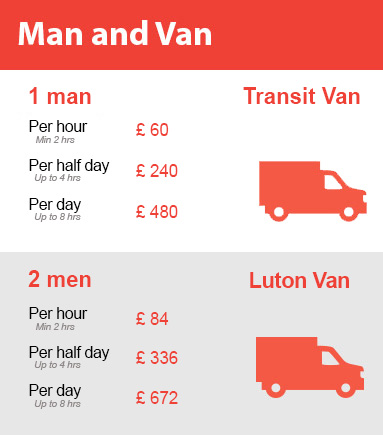Innovative Solo Lifting Practices: Simplifying Heavy Object Movement
Posted on 22/05/2025
Innovative Solo Lifting Practices: Simplifying Heavy Object Movement
Moving heavy objects has been a challenge faced by individuals and professionals alike for centuries. Whether you're relocating furniture in your home, shifting equipment in a workshop, or handling deliveries in a warehouse, the task often demands strength, strategy, and, increasingly, innovative solo lifting techniques. In this comprehensive guide, we dive deep into the latest methods, solo lifting practices, and equipment designed to make heavy object movement easier, safer, and more efficient for a single person.
Why Rethink Traditional Lifting Methods?
Classic lifting techniques--like the squat and lift--still have their place, but modern lifting demands have outpaced them. With rising urbanization, smaller living spaces, and an increase in logistical solo tasks, more people find themselves needing to move large or awkward objects alone.
- Risk of personal injury from improper technique
- Potential for property damage
- Time and energy inefficiency
- Lack of assistance when needed most
Innovative practices and specialized equipment are addressing these concerns by making lifting heavy objects alone not only possible, but surprisingly manageable and safe.

Understanding the Basics of Lifting Large Items
The Science of Ergonomics
Ergonomics focuses on designing jobs or products that fit the user's needs to prevent injury and increase productivity. When applied to moving heavy objects solo, ergonomic principles can dramatically reduce the risks associated with overexertion.
Common Injuries Associated with Heavy Lifting
- Strained backs and pulled muscles
- Slipped or herniated discs
- Sprained wrists and ankles
- Lacerations and bruising from dropped items
Proper technique and new self-lifting equipment can help mitigate these risks.
Cutting-Edge Solo Lifting Practices
1. Leverage-Based Lifting Tools
From furniture sliders to innovative lifting straps, the leverage principle allows individuals to lift far more than their weight would suggest. Leverage tools reduce friction, distribute weight, and create a mechanical advantage.
- Shoulder Dolly and Forearm Forklift - Strap systems harness large muscle groups and center gravity, enhancing power while reducing back strain.
- Telescopic furniture lifters - Adjustable-length lifters provide both reach and leverage for raising and positioning loads solo.
- Pivoting dollies - These compact devices allow you to lift, tilt, and roll objects with minimal effort.
2. Pneumatic and Hydraulic Lifting Aids
Technological advances in small-scale hydraulics and pneumatic mechanisms are now available for personal use.
- Portable hydraulic lifts - Ideal for awkward appliances and machinery, these devices raise heavy weights with minimal physical effort.
- Pneumatic pads and air-cushioned movers - Slide under loads; then, with the power of air, glide even multi-hundred-pound items across floors.
3. Roller and Track Systems
Borrowed from industrial practice, modern home and office movers can employ roller bars, pipe rollers, or temporary trackways to reduce the required lifting force.
- Lay down lightweight PVC or metal tubes beneath furniture or boxes to "roll" instead of carrying.
- Install simple stick-on trackways for sliding large objects across flat surfaces with ease.
4. Motorized Lifting Devices for Solo Use
Portable, battery-powered mini dollies, and robotic lifters are on the rise. These innovations bring professional-grade automation into the hands of regular people.
- Remote-controlled stair climbing carts
- Motorized moving dollies with steering controls
- Personal hoists for solo loading or unloading
This category makes previously impossible tasks--like moving a water heater up stairs solo--realistic and safe.
5. Innovative Packing and Preparation Methods
Sometimes, solo lifting innovation isn't about tools but smarter preparation:
- Breaking down large items into smaller components where possible
- Using strong, easy-grip handles or temporary attachment points
- Planning a clear, obstacle-free path in advance to avoid sudden stops or swerves
Essential Safety Tips for Solo Lifting
Preparing Your Body and Workspace
- Warm up your muscles before starting any heavy lifting
- Wear shoes with slip-resistant soles and protective gloves
- Ensure floors are clean, dry, and free of obstacles
Using the Right Technique
- Bend at your knees, not your waist, and keep your back straight
- Keep the load close to your body to reduce strain
- Lift using your legs and core, not just your arms or back
- If twisting is necessary, move your feet--not your torso
Recognizing Your Limits
- If an item feels too heavy, stop immediately and reassess
- Don't hesitate to split the load or find a mechanical advantage
- Take frequent breaks when handling multiple heavy objects solo
Popular Solo Lifting Equipment: Reviews and Innovations
Let's explore some of the most innovative solo lifting products on today's market and what makes them stand out for individual users.
Furniture Lifting Straps and Harnesses
- Pros: Lightweight, affordable, highly adaptable for different objects
- Cons: Requires some initial setup and practice; not suitable for all shapes/sizes
Great for solo movers tackling sofas, dressers, or safe boxes within the home or office.
Air Cushion Movers
- Pros: Nearly eliminate friction; highly effective on flat, hard surfaces
- Cons: Require an air source (pump or compressor) and careful load placement
Especially useful for glass display cases, refrigerators, or lab equipment.
Compact Hydraulic Lifts
- Pros: Provide significant lifting force with minimal physical input; portable designs available
- Cons: Initial investment can be higher; maintenance sometimes needed
Recommended for garage work, appliance moves, and small business deliveries.
Powered Stair-Climbing Dollies
- Pros: Handles stairs safely; reduces risk of falls and strains
- Cons: Heavier equipment; learning curve for controls
Transforms what would normally be a two-person move into a simple solo job.
DIY Solutions: Household Items That Can Help
Homemade Sliders
Use thick towels, frisbees, or even strong plastic lids under heavy furniture to create instant sliding aids on carpet or hardwood. This is cheap, effective, and readily available for emergency solo lifting.
PVC Pipe Rollers
A few sections of sturdy PVC piping can serve as makeshift rollers--just like ancient builders used logs to move massive stones for construction. This trick lets you move heavy objects alone with far less muscle strain.
Frequently Asked Questions about Solo Lifting Innovation
Is it ever completely safe to lift heavy loads alone?
With the right preparation and the latest solo lifting devices, many home and workplace moves can be handled safely. However, there is always some risk. If possible, plan ahead to use support devices and lifting accessories, and never exceed your comfort or strength level.
Which lifting devices are best for apartments or small spaces?
Lifting straps, compact roller sets, and air glide movers are ideal for tight spaces. They require little storage room and can be deployed quickly for moving heavy objects by yourself.
Can these products damage floors or walls?
If used correctly and with proper padding or sliders, most innovative moving aids are safe for floors and walls. Always check product instructions and add extra cushioning when in doubt.
Embracing a DIY Mindset: Planning and Strategy
A well-executed solo move is as much about strategy as strength. Experienced movers recommend the following steps for efficient and injury-free solo heavy object relocation:
- Map out your route in advance. Measure doorways and obstacles to avoid getting stuck.
- Break your move into sections. Move the object to "staging areas" along the way rather than attempting a single long haul.
- Leverage innovative solo lifting gear. Invest in the right equipment for your needs--even if it's as simple as a quality pair of gloves or as robust as a powered dolly.
- Ask for help when necessary. In emergencies, or when an item is simply too big or fragile, do not hesitate to call a friend, neighbor, or professional moving service.

The Future of Solo Lifting: Where Are We Headed?
Technological advances will continue to make solo heavy object movement even more accessible. In the years ahead, we can expect:
- More affordable robotic lifting devices for consumers
- Smarter, lightweight materials for lifting aids and furniture
- App-connected movement trackers for safety and planning
- Greater integration of AI to assess and guide safe moves
With each innovation, the list of what one person can do alone will continue to grow--making solo moves less intimidating and more empowering than ever.
Conclusion: Mastering the Art of Solo Heavy Lifting
Innovative solo lifting practices are redefining how we approach heavy object movement. From new personal lift devices to clever DIY tricks, moving large items alone no longer has to be a daunting, injury-prone ordeal. By combining the right equipment, technique, and mindset, virtually anyone can tackle difficult moves safely and efficiently--unlocking new levels of independence and capability in both personal and professional settings.
Whether you're a solo dweller, a DIY enthusiast, or a professional handling deliveries alone, embracing modern lifting solutions can transform the way you work and live.
Ready to simplify your next move? Try one of these innovative solo lifting practices and discover just how easy heavy object movement can be!
Latest Posts
Practical Tips for a Smooth Bed and Mattress Move
Nail Your Moving Day with Expert Packing Advice
A Step-by-Step Guide to Pre-Move Home Cleaning
How to Extend Your Freezer's Life When Not in Use
Insider Secrets to Storing Your Sofa for Maximum Preservation





